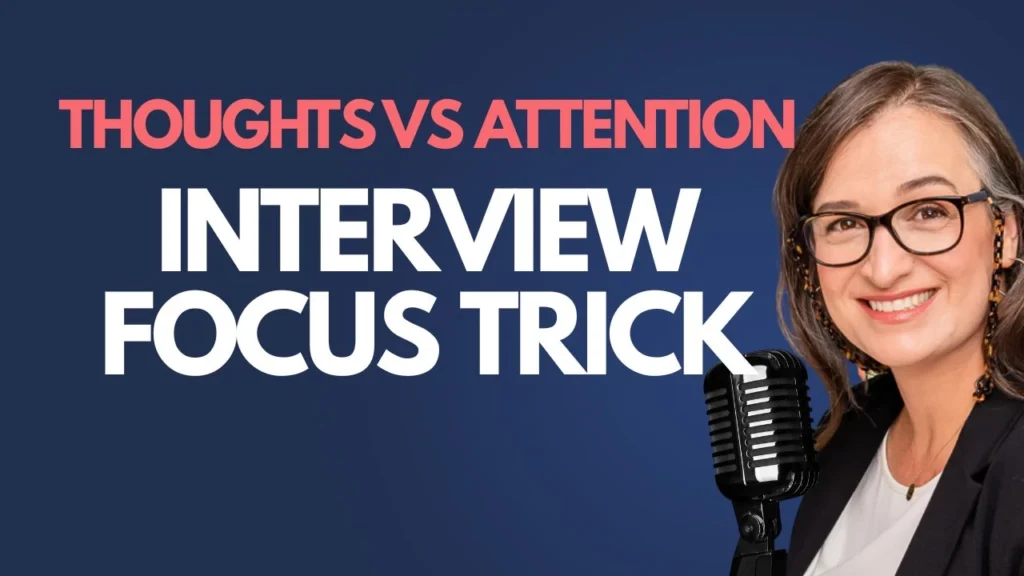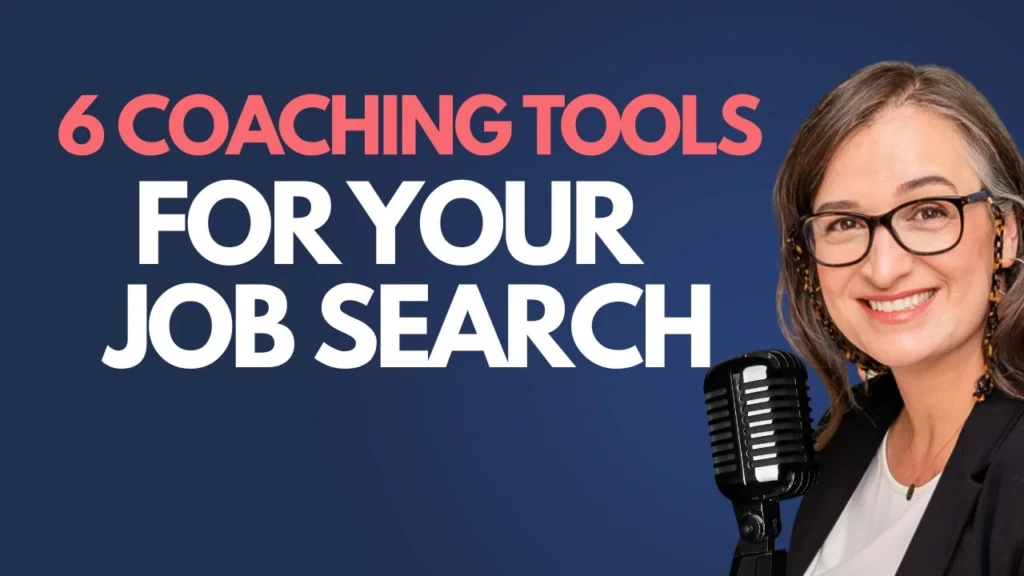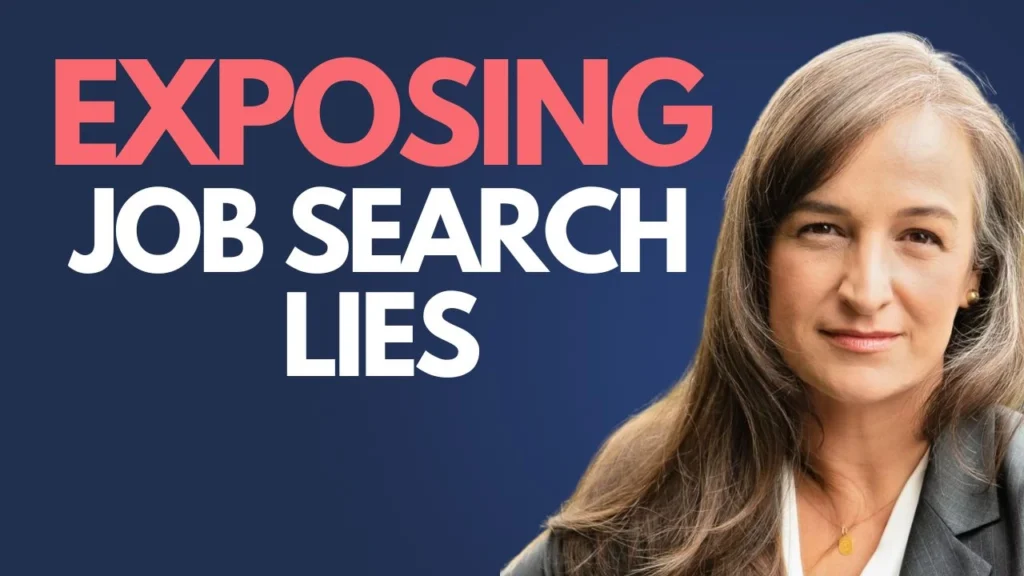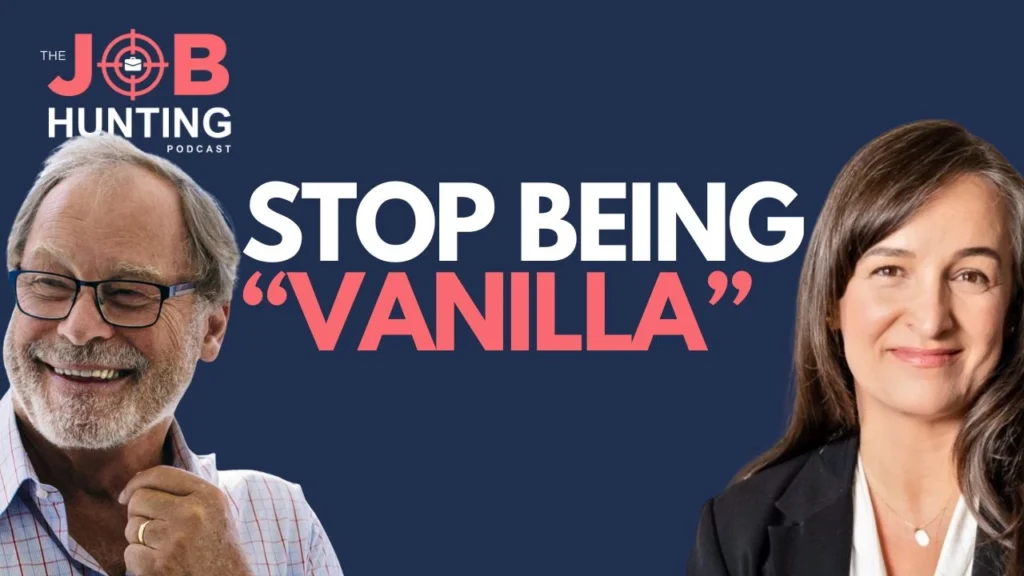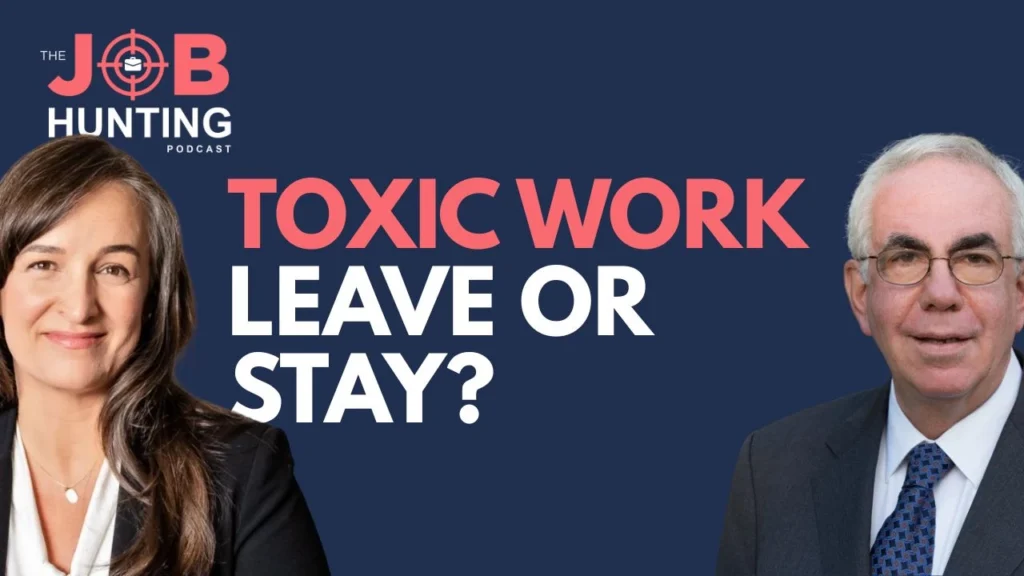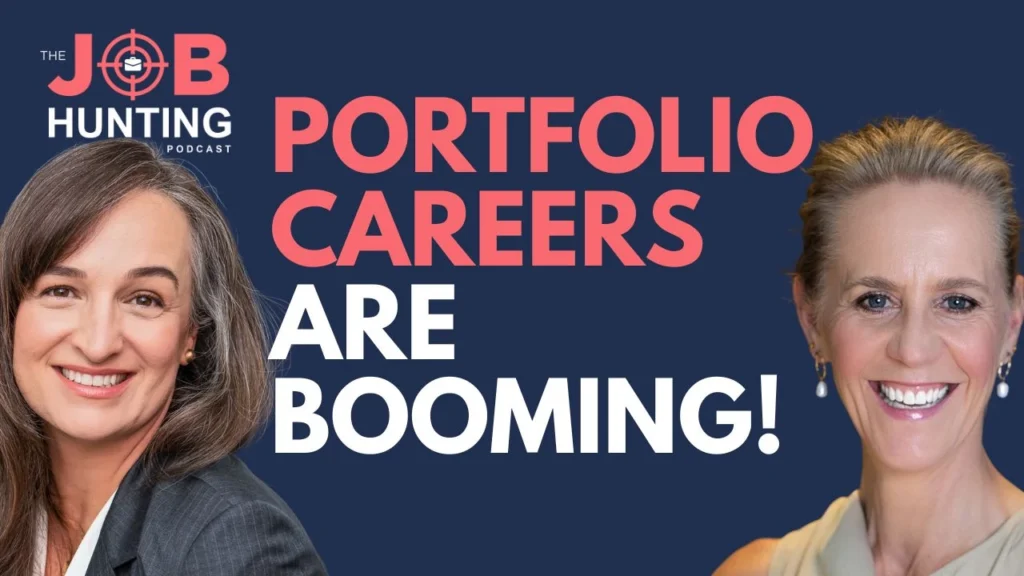Too Busy to Job Hunt?
Episode 294 - Job Searching is Work. Learn How to Treat it Like a Priority and Make Meaningful Progress
Professionals often find themselves juggling the demands of full-time work, family responsibilities, and their ambition for professional and career development. Finding the time and energy for a structured, effective job search can feel overwhelming. In this episode of The Job Hunting Podcast, I share my reflections on how to incorporate job searching into your routine, inspired by productivity expert Nir Eyal, author of Indistractable. The focus is on reclaiming your attention and making your job search a structured part of your life rather than an afterthought. This blog provides a summary of the key themes and takeaways from the episode to help professionals manage their careers proactively and sustainably.
Job Searching is Real Work
The first mindset shift I encourage listeners to make is simple but profound: treat job searching as real work. It's not something to squeeze into leftover time or handle when you're exhausted at the end of the week. When you shift your perspective and begin treating your job search with the same respect and structure as your current role, you'll make real progress.
Most professionals fail to prioritize their job search. They defer it to weekends or evenings, times when energy and motivation are low. This approach sets them up for failure. On the contrary, scheduling consistent, focused blocks of time during your peak productivity hours, even if it's just 30 minutes a couple of times a week, can significantly increase your chances of success.
Designing a Sustainable Job Search Routine
A sustainable job search routine requires consistency, not intensity. Job searching is not a habit that forms automatically; it's a deliberate practice that demands emotional energy and intention. To make it work, you need to:
- Time-box your efforts: Use your calendar to schedule specific tasks, such as researching companies, tailoring resumes, or reaching out to your network.
- Start small: Begin with manageable sessions, such as 30 minutes twice a week. You can build from there.
- Prioritize wisely: Focus on high-impact activities such as reaching out to decision-makers, rather than just scrolling through job boards.
Job search tasks that benefit from time boxing include:
- Updating your resume
- Writing LinkedIn posts
- Following up with recruiters
- Drafting and tailoring applications
- Journaling your reflections and insights
Overcoming Distractions
We live in a world full of interruptions: Slack messages, notifications, family obligations, social media, and more. These distractions make the already taxing process of job searching even harder. That's why creating an environment conducive to focus is critical.
Some tips shared in the episode include:
- Turn off notifications: Put your phone on airplane mode during job search time.
- Use productivity apps: Tools like Freedom or Cold Turkey help block digital distractions.
- Communicate boundaries: Let your family and housemates know when you are unavailable.
- Designate a workspace: Whether it's a quiet corner, a co-working space, or a dedicated browser profile, physical and digital boundaries help you enter a flow state.
Understanding the concept of flow, as introduced by psychologist Mihaly Csikszentmihalyi, also plays a part. Once you push through initial resistance, you may find that time passes quickly and you're able to work with greater clarity and enjoyment.
Embracing Discomfort
Job searching is logistically challenging and emotionally demanding. There will be days when you feel unmotivated, discouraged, or even rejected. That discomfort is part of the process. Quoting Nir Eyal's insight that "all action is about avoiding discomfort," I encourage professionals to recognize these feelings and move forward anyway. Strategies that can help include:
- The 10-minute rule: Commit to working for just 10 more minutes. Often, you’ll find that momentum carries you further.
- Journaling: Reflecting on internal thoughts and fears provides clarity and helps normalize your experience. One historical example I share is Sir John Monash, who diligently kept journals and correspondence. These personal writings help us understand the value of reflection, even in today's digital age.
Case Study: A Realistic Success Story
Let me share the story of a client, Anna (not her real name). She worked full-time, had a young family, and initially didn't have the energy for job searching. I told her honestly that it wasn’t the right time to invest in coaching. Six months later, she returned, ready to make a commitment.
Together, we developed a minimalist routine:
- 1 hour/week reaching out to people
- 1 hour/week tailoring applications
- 1 hour/week for coaching or watching training videos
Just three hours a week. Within six weeks, she began securing interviews. Her success was not due to overexertion; it was the result of a well-defined strategy, effective structure, and unwavering consistency.
Actionable Strategies for Job Seekers
Sign up for my newsletter to gain exclusive access to actionable strategies every week.
The Future of Career Management
Today, corporate professionals face a disruptive employment landscape. Massive restructurings, such as Microsoft's 6,000-person layoff, even within LinkedIn, remind us that no role is truly secure. Taking ownership of your career has never been more critical. Relying on employers to map out your path or ensure job security is no longer viable. Instead, professionals must adopt a proactive and future-oriented mindset:
- Stay attuned to industry shifts and emerging roles
- Invest time in self-reflection and strategic planning
- Build and maintain a strong professional network
Job searching is demanding, but it doesn’t need to be overwhelming. With a structured routine, the right mindset, and a few hours of focused effort each week, you can move your career forward in a meaningful way. You don’t have to do it alone. Whether through a self-paced course or coaching support, there are resources available to guide you. As you reflect on your own journey, remember: routine beats inspiration, strategy beats hustle, and consistency beats perfection.

About the Host, Renata Bernarde
Hello, I’m Renata Bernarde, the Host of The Job Hunting Podcast. I’m also an executive coach, job hunting expert, and career strategist. I teach professionals (corporate, non-profit, and public) the steps and frameworks to help them find great jobs, change, and advance their careers with confidence and less stress.
If you are an ambitious professional who is keen to develop a robust career plan, if you are looking to find your next job or promotion, or if you want to keep a finger on the pulse of the job market so that when you are ready, and an opportunity arises, you can hit the ground running, then this podcast is for you.
Timestamps to Guide Your Listening
- 00:00 Introduction to Job Searching Challenges
- 04:55 Creating an Effective Job Search Routine
- 09:56 Staying Focused Amid Distractions
- 22:06 Strategies for a Successful Job Search
Transcript
Welcome back to the Job Hunting Podcast. If you’re listening to this, there’s a good chance you’re either in the middle of a job search or thinking about making a change or you’re supporting someone who is. Either way, you know how overwhelming it can feel, your juggling work, family, maybe recovering from a layoff or just burnt out. And yet there is a pressure to find your next step in your next job. So today’s episode is all about
how to make time for your job search, even when your life is already full, it feels full at least, inspired by productivity writer Neil Yell, whose book Indistractable is one of my favorites. It’s about reclaiming your attention and making time for what matters. We are going to apply similar thinking to job hunting.
Because the truth is, finding a job takes time and you won’t find that time unless you create the time. We will look at how to design a job search routine that works around your reality, how to overcome distractions because they will appear, and excuses because we always have them, and how to make progress without burning out. Whether you are between rows or you’re working full time or looking for a new job,
I think this episode will help those of you that want to carve out the time to have a structure planned job search strategy, which is, it’s all I’m for. So let’s get going.
So the first thing we need to acknowledge is that job searching is work. Let me repeat that. Job searching is actually work and you need to treat it that way. Let’s start with something really fundamental. The fact that you need to find time to do the work, to find a new job. If you have a job and you’re still looking, it is harder because you need to carve out the time from your
Personal time, maybe some from your work time, maybe you can ask for leave or you can finish early a few days, but most people don’t treat job searching like that. So if you start doing that, it will already be an amazing advantage for you. Most people, what they do and maybe you are one of them, is they treat it as something secondary, something they will do
when they have the time, maybe after work on a Friday evening, on a Sunday, on a weekend. my gosh, that’s the worst time for you to do it because you’re not going to be feeling inspired. You’re probably going to resent it. You’re going to be feeling tired because you’ve worked all week. But this mindset, it helps you so much if you identify that job search is work and that you need to find the time to do it.
Because the other mindset, the mindset that thinks about job search as something you need to do when you have a little bit of time, it takes time away from your family or from things that you love to do, that is the mindset that sets you up to fail.
So now you know, and I think you already knew, that what gets scheduled gets done. And what doesn’t, really? That’s how we do most things. It just gets pushed away. Job search gets pushed away again and again. And that’s why so many people start the year, New Year’s Eve, and early in the year, we always get those, you know, research shows that 70 % of the workforce wants to change jobs this year.
And then at the end of the year, we know it’s not even half of that. It’s like very little. And the reason is it’s not scheduled. It just falls off the cracks because you don’t do it. If you value your career, your income, your ambition, your purpose, then your job search deserves a spot on your calendar and it deserves your investment in it as well. Not as an afterthought.
but as a priority for you. This doesn’t mean you have to quit your job or spend five hours a day applying for jobs. That’s not what I want you to do, please believe me. But it means that you have to have created a consistent, dedicated time to move your job search and your career forward.
Now let’s talk about creating a job search routine that actually works. That is another huge challenge because I see a lot of people spending hours and hours doing tasks and then no result. And then they blame the environment when in fact what’s happening is mostly they don’t understand the technical aspects of finding a job and applying for jobs successfully.
So let’s talk about those routines that work and let’s be clear. Something that we, I need you to know is that job search is not a habit. Habits are things that you do without thinking, like brushing your teeth. Job search is an effort, unfortunately. It takes emotional energy out of you. It takes intention. What you need is a routine.
a time that you’ve boxed up, that you’ve scheduled and blocked in your calendar in a week or in a day where you sit down and you work on your job search. It starts small, it doesn’t need to start big. Some people want to make too much of it too soon. When your mindset and your reflections about your career, they may not even be sharp enough for you to spend a whole week doing it.
Why not just block 30 minutes on a Tuesday or a Thursday, use that time to update your resume or just answer some of the questions that I invited you to consider in the previous episode 293. I listed a whole bunch of questions, so go to that episode 293, write those questions down and answer them very quickly without thinking, just whatever comes up in your head.
Or use that 30 minutes to research companies that you would like to work for. Or maybe write a draft call for letter, just so that you have that template ready. As you build momentum day by day, week by week, you can increase the time or frequency because your brain will get used to it. One helpful tool is time boxing. Literally blocking time in your calendar.
for the job search tasks that need to be done. Some of them you will enjoy doing, most of them you will not. So doing this time boxed, it means that you know that you have to do it, it’s in your calendar, it gets done. Name the task in the calendar as follow up with a recruiter or write a LinkedIn post or apply for three roles or answer the questions from episode 292, sorry 293.
Treat it like a meeting in your calendar. Show up for yourself. Do the work for your future and make it sustainable. Don’t try to overdo it by blocking up time that’s too long or a task that is too complex for you to do on your own. Don’t aim for perfection either. Aim for consistency.
One of the things that happen often to me is that people will call me on a Friday and say Renata can you help me? I need your help. I need to book a consultation this weekend. Is it possible? I have a job that I need to apply for on Monday. It is my dream job. And frankly, I don’t have the stamina to keep on going after coaching for an entire week. There are days during my week that I do 12 to 14 hours of coaching.
So I really need my weekends and that’s why I’ve created Reset Your Career. If you’re ready to be proactive and take those steps in your job search, I want you to consider enrolling in my very affordable short course, Reset Your Career. I created this course for people like you who really need that long weekend or they want to space it out over a few days or a month.
but the master classes are there to take you step by step. If you trust me, I guarantee that you will see results with Reset Your Career. And right now in the month of June 2025 until the end of the month, if you invest in Reset Your Career, you can then book a 30 minute one-on-one chat with me. As soon as you invest in it during the month of June 2025, you will receive an email from me.
from me personally, inviting you for a conversation and sending you a link to book your time. Just go to renatabernadi.com forward slash reset. There will be a click to that course in the links in the show notes below. So I hope to see you soon.
Okay, let’s go back to how to stay focused in a distracted world. This is another big issue because so many things get in the way when you’re looking for a job, but then there is this urgent thing at work or your family member gets sick or you get sick. We live in a world full of distractions and other priorities. I understand that. It happens to me as well.
but there are notifications and emails and Slack messages and family demands. It’s no wonder that job seekers really do struggle to stay focused when the task of job seeking is already so high energy and time consuming. But your job search deserves your best attention. I often joke when I’m doing group coaching and if you buy my courses, you’ll probably see me talking about this, but…
When I had job interviews in my past, my kids would just eat instant noodles for a week because my priority was the job interview. And what I often see is the reverse of that. People that say, all right, I have a job interview next Monday, so I’m going to do everything I need to do. And then on Sunday, I will prep for the interview. That’s not how you prep for interviews, everyone. So when it’s job search time,
treat it like a sacred time, turn everything off, notifications, other priorities. If you had a trip booked, you unbook it, you reschedule it, because if you really, really want that job, your priority is to invest in it. Put your phone on airplane mode, use apps like Freedom. There’s another one, I think it’s called Turkey, Cold Turkey. Maybe you know, I don’t have that one.
If you need help blocking distractions, think it’s worth investing in those apps. And tell your family and your housemates or your friends, I will not be available for this next week, for this next weekend, for this next hour, if it’s no little kids that need your attention all the time. It’s really important to create that physical…
and digital environment that supports your job search and supports you being hyper focused because the hyper focus has everything to do with flow. Chick sent me hi who was a wonderful psychologist. I love his book. If you haven’t read it and you’re interested in positive psychology flow is one of the best reads and it’s all about really that beginning. know, do you know when you’re reading a book I often have that problem and those first few chapters are
quite difficult, but then once you get into it, it just flows. That’s flow, right? The beginning of it, there’s always that bit of friction there, but once you get going, it’s wonderful. And that will happen to you with job search as well. At least that’s what I hope it will happen. Maybe, you know, something like a quiet corner in your home. Some people opt for co-working spaces.
Some people go somewhere else, a library even, or even just a browser profile that only has tabs open for job searching. I think that that’s great. I often have special browsers just for specific tasks and that can get you back into flow really quickly if you had to have a distraction, for example.
Now that we’ve covered distractions, let’s talk about the discomfort of looking for work, right? Getting comfortable with discomfort is really important when you’re job searching because it’s not a comfortable task. Here’s a big one for you. You won’t always feel like job searching. In fact, you might sort of be motivated for an hour and then you will just go, ⁓
This is so exhausting and it’s so overwhelming. Why am I doing this? I am so tired. And then we get unmotivated really quickly, scared of rejections. If they start coming, I’ve spoken about this in episode 293. There are more rejections than, than yeses in a job search and it’s normal. That’s how it’s supposed to be. We’re just not used to this and our brain doesn’t like it.
So we need to remind ourselves of that. yourself out there is really emotionally draining for several reasons. But here’s the truth. If you wait until you feel motivated, you will never start. so expect the discomfort. Remember that the discomfort is part of that process and keep going anyway. Going back to my productivity expert near Yale,
He talks about the idea that all action is about avoiding discomfort. And instead of trying to eliminate the discomfort, you need to learn to move with it. Right? Understand that, you know, you’re not going to die of this, of job searching. It’s only uncomfortable, but it’s not life threatening. One tactic is that you can do the 10 minute rule.
If you’re feeling distracted or unmotivated, say, I will just do this for another 10 minutes. And most of the time, once you get started, you might keep on going. That’s what I hope. Let me know if it works. I really like that. Just another 10 minutes. Let me just give it 10 minutes and then keep on going. Another tip is journaling your internal triggers.
Now, I often discuss this with clients as well, that I feel that one of the biggest problems that we have as human beings is that about a hundred years ago, we decided to stop journaling. Up until then, we were very good at journaling. Many people have produced wonderful journals and diaries that we read today. And I love reading those journals and diaries. As somebody who worked with
one of Australia’s hero John Monash. Monash was just so great at writing journals and I have many of his letters that he wrote to his wife. His great-grandson gave me a collection of journals and letters from John Monash. And it’s so wonderful to see the time that people used to spend, probably I’m thinking, I’m assuming, know, late in the evening, just writing things down.
just for themselves or their loved ones reflecting on their day on the things that have happened thinking about their dreams and the things that they wanted to achieve in their careers and now we don’t do that anymore we don’t do that at all so why don’t you journal what is happening to you your internal dilemmas what thoughts come up when you sit down to work name them
You know, observe what’s happening, how you’re feeling, and then return to your tasks. See if journaling regularly, ⁓ alongside job search or even on its own. Forget job search. Try journaling and see if it helps you get more clarity about yourself and your feelings and what you want in life and your ambitions.
I have collected a few examples which I’m trying to share over the next few episodes. I started doing that in the last episode 293 and today I want to talk to you about Anna. That’s not her real name of course, but she came to me while she was working full time. So she paid to work with me as a private coach for six months because she was very busy and six months is usually the time.
that people book as a retainer with a career coach if they know that they work full time and job search is something they will have to do on the side and that’s usually my advice for them as well. So Ana, Ana she felt like her days were jam-packed and they were and that she had no energy to look for a new role and yep she didn’t. I remember even that she contacted me and then I told her
I don’t think you can fit job search right now in your life. And I think that the honesty as well from a career coach, from my perspective, I want my clients to succeed. I want them to finish working with me with a job. Right. So if I feel that I don’t get the vibe that they can in fact invest not only financially to pay me, but time wise to do the work, I tell them, as I did.
So I think it was only maybe six months later that we started working and she said, now I’m ready. Now I understand and I want to work with you. So she knew, she knew her job wasn’t right for her anymore. And she found out the time and the energy to invest in coaching. And of course, with a coach, it is easier because you’re following a set framework that is
supposed to be successful if the coach is good. you know, I like to think that my clients are very happy and ⁓ have done really well with my framework. So we created a minimalistic routine for her three hours per week. That’s what we agreed on. So one hour for reaching out to people, one hour for tailoring applications, and then one hour for either having
one-on-one consultation with me or for watching the videos inside my coaching platform for my clients. So my clients have access to lots of content and resources and then I will guide them through which modules they have to do and usually the videos in those modules are about an hour. And she followed it and even when it felt hard ⁓
She, she still did it and that’s what we’ve agreed on three hours, no more. didn’t have any more time. Small kids. totally understand. And it took about six weeks until she started getting into the flow of securing interviews and, know, working out time for her network. And I think she couldn’t have done it without the pre-work, right? Because you can’t just.
jump into people’s time and book time to talk to them if you don’t really know your pitch yet. If there is not at least a minimal viable pitch. I remember last week saying, just talk to people and ask for advice. If you’re in transition and you don’t have a job, I think that that’s okay. But if you’re currently working and you want to transition out, you can allow yourself some time to be more strategic about how you’re going to start conversations with your network.
⁓ And yes, of course she landed a great job in since then. She, I think it’s now her second or third job. She keeps coming back for group coaching sessions. She’s really good at investing her in herself. ⁓ Booking consultations from time to time. It wasn’t about hustling it. It was about strategy, right? Especially if you’re time poor. Strategy, regularity, showing up.
maybe having an investment with a coach so that it creates that accountability and you don’t drop out of your own personal goals because everything else gets in the way.
So here’s a summary. Job searching is an effort, yes, but you don’t need to overcomplicate it. You don’t need to make it more difficult by not following the right steps or being quite overwhelmed with all of the things that you have to do to make it work. What you need is to make time for it, even if it’s a few focused hours a week, follow a certain protocol.
understand that there will be lots of different advice out there and different ways of, you know, people trying to support you. But in the end, you need to know what you want more first and foremost, and hopefully find a protocol or framework for job search that suits you. Even a few focused hours a week can really make a difference rather than a scatter gun approach and an ad hoc approach to it.
So again, it’s about routine and not inspiration. You need to treat it like work, not like a side project. And you need to protect your focus like it matters because it does, right? And I think what we have learned from 2024 and 2025 specifically is that more now than ever, we as corporate professionals, I I used to be one, now I’m a coach.
my clients and my listeners, people that work behind a desk in front of a computer, we need to take control of our careers now more than ever. Understanding that if we delegate that to employers, we are taking a huge risk. Even if you’re a high performing employee, that does not keep your job safe. There are massive restructures happening.
We’ve just seen Microsoft let go of 6,000 people, including some of my friends at LinkedIn. So it is important for us to understand that spending time in your thinking about our careers, reflecting and journaling on our ambitions and what we want to achieve in life, understanding what the roles for us are coming up in the future, having that future oriented mindset is actually a very important investment of your time and effort.
because you want to have a long career and you want to continue to earn money for years and decades to come. So next week, I will go deeper into how to stay grounded and focused. I’m thinking about the best way of introducing that. And everything feels out of control at the moment, I think, for many people that are looking for work.
There’s a lot of instability in the market commercially for businesses. If you think about businesses that are still struggling with changes that are happening in the world with wars and taxes and student visas, like there’s just so many things to consider. It’s hard to actually make ⁓ efforts and strategies for companies growth. mean, also let’s think about AI, even if
politically in general, politically everything was fine. We still have the intervention of AI into the corporate world. So we will talk about what to do and when the job market feels unpredictable, where to land and how to move in the right direction that is the safest and less risky for you. That’s next episode. Before we wrap up,
I just wanted to take a moment to highlight this important initiative. I’ve mentioned it at the last episode as well. It’s inviting you to be part of it because right now we have thousands of experienced professionals that are being laid off from the United Nations, UN agencies and WHO. And these are people with deep expertise in global development, health and humanitarian work. Just to give you an idea, we’re talking here about 20,000 people.
that were let go in May 2025. These people were very dedicated to their careers. The current geopolitical environment means that the entire sector for them has been disrupted for lack of funding and they’re in deep transition, transitioning not just out of a job, potentially out of a career. Many of them are navigating a very tough job market, as you probably know personally, feeling lost and isolated and unsure about what’s next.
And that’s why the team in UN agencies and ⁓ LinkedIn Europe have created a program called Korea Pivot Ally Network. You download the special banner, you add it to your LinkedIn, and that grassroot effort will help those ⁓ that are transitioning out of the United Nations to connect with people like you and
That means that you might be able to provide them with a short chat, a conversation, some exchanges of messages on LinkedIn to provide them with some practical support. They might want to hear from what type of work you do. They might want to hear if you have time to review their resume, if they’re interested in the sort of work that you do right now, the sort of environment that you work right now. They might seek out specific people to…
have a conversation about it. You do not need to be a coach, of course. It’s just, you know, a nice thing to do for a group of professionals that is really trying to quickly find another job. If you’ve changed careers in the past, if you’ve been without a job in the past, you know how tough it can be. So if you want to be an ally, that would be fantastic. It’s super simple. There will be a link.
on how to download that banner and what it means in the episode show notes. So go to the links ⁓ that are mentioned in this episode and the link to the Ally program will be there. Please take a moment to check it out. It means a lot to me and it will mean a lot to, you know, so many professionals out there. It’s a small action and it makes a huge difference. And, you know, I’m really passionate about this project.
And thanks for listening all the way to the end. If you’re still here, you’re not signed up for my newsletter. Why not? You know, there’s special ⁓ resources that I only send to newsletter subscribers. So if you’re not yet signed up, just go to the LinkedIn notes and find a way to subscribe. I will be waiting for you weekly with the newsletter that I send every Tuesday. See you next time. Bye.


